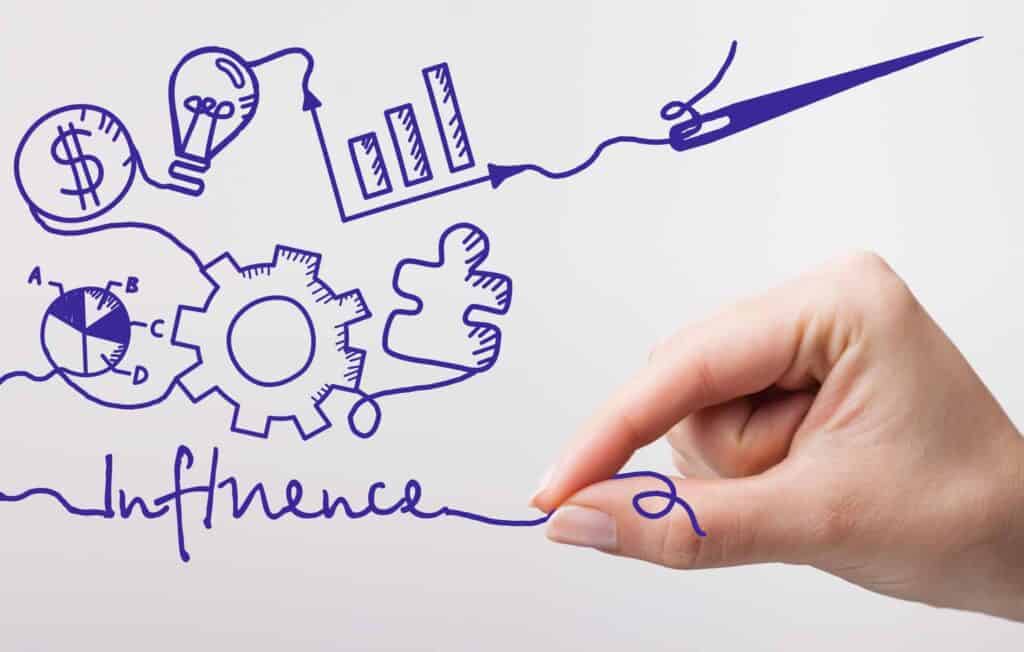Have you ever wondered why some products fly off the shelves while others seem to gather dust? The secret often lies not in the product itself but in the words used to sell it.
As a sales representative, marketer, or business owner, the language you use can make or break your sales. The right terms can evoke emotions, create a sense of urgency, and ultimately drive your customers to make a purchase.
So, how do you harness the power of compelling vocabulary to sell your product? Let’s dive in.
The Psychology of Persuasive Words
Compelling vocabularies are more than just a means of communication; they are powerful tools that can influence our emotions and decisions.
Certain terms and phrases have been proven to be particularly effective when it comes to selling. Such a powerful word taps into psychological triggers such as scarcity, social proof, and exclusivity, making your product more appealing to potential clients.
For instance, phrases like “limited edition” and “exclusive” create a sense of scarcity, making your brand seem more desirable. Similarly, phrases like “best-selling” and “popular” provide social proof, reassuring consumers that others have made the same purchase and were satisfied.
But remember, the key is to use these expressions authentically and accurately. Misleading your clients can harm your credibility and damage your brand’s reputation.
I. Crafting Compelling Product Descriptions
This is an art that goes beyond merely listing product features – it’s about creating a vivid image that showcases how your brand can enrich your customer’s life. By focusing on benefits over features, you can connect with your consumers on a deeper level and make your offer more enticing.
Crafting compelling item descriptions is not just about informing your buyers about your product; it’s about engaging them, addressing their needs, and convincing them that your product is the solution they’ve been searching for.
A well-crafted item description can significantly influence buying decisions, boost your conversion rates, and ultimately increase your sales. Moreover, it can enhance your SEO efforts, making your brand more visible to potential consumers.
To master this strategic approach, start by focusing on the benefits of your product rather than just its features. This subtle shift from features to benefits makes your product more relatable to your customers.
Powerful Words to Supercharge Your Product Descriptions
- “Transformative” – This term suggests a significant change or improvement, making your offer seem life-changing.
“Experience the transformative power of our skincare range. Say goodbye to blemishes and hello to radiant skin.”
- “Revolutionary” – This good word implies that your product is groundbreaking or innovative.
“Our revolutionary fitness app makes working out fun and accessible, helping you achieve your fitness goals with ease.”
- “Effortless” – This term suggests that your brand is easy to use or easy to navigate.
“Enjoy effortless cleaning with our high-powered vacuum cleaner. It’s time to make dust and dirt a thing of the past.”
- “Exquisite” – You can use this word to convey a sense of luxury and high quality.
“Indulge in the exquisite craftsmanship of our handmade leather bags. Each piece tells a story of tradition and quality.”
- “Unparalleled” – This term implies that your brand is unmatched in its category.
“With unparalleled performance and sleek design, our new smartphone stands out in the world of technology.”
II. Building Trust and Credibility
Trust and credibility are the cornerstones of any successful business relationship. They are the invisible threads that connect your brand to your clients, making them feel secure and confident in their decision to choose you.
When customers trust a brand, they are more likely to make a purchase, become repeat consumers, and recommend the brand to others. This not only boosts sales but also enhances the brand’s reputation and client loyalty. Moreover, trust and credibility are not given; they are earned.
Therefore, honesty, transparency, and consistent delivery of value are key to building and maintaining them.
Building trust and credibility doesn’t happen overnight. It starts with choosing the right words that convey reliability and assurance. Remember, every interaction with your clients is an opportunity to build trust, so always be honest, transparent, and consistent in your communication and service delivery.
Powerful Words to Build Trust and Credibility
- “Guaranteed” – You can use this word to sell and assure buyers that they can rely on your product or service.
“Our guaranteed delivery service ensures your package arrives on time, every time.”
- “Proven” – This term shows that your product or service has been tested and has delivered positive results.
“Our proven skincare range has helped thousands achieve healthier, glowing skin.”
- “Reliable” – This word gives consumers the confidence that your product or service will consistently deliver as promised.
“Our reliable customer service team is always ready to assist you with your needs.”
- “Tested” – This term indicates that your product or service has undergone rigorous checks to ensure its quality.
“Our tested software provides secure and efficient data management.”
- “Trustworthy” – This word assures clients that they can trust your brand and its offerings.
“As a trustworthy financial advisor, we prioritize your financial goals and provide personalized solutions.”
III. Overcoming Objections and Addressing Customer Needs
Overcoming objections and addressing customer needs is all about breaking down barriers that might hinder a client from making a purchase. It involves anticipating potential concerns and proactively addressing them to reassure the buyer.
This strategic approach is a critical aspect of sales because it helps build trust and rapport with consumers, which can lead to increased sales and client loyalty.
Moreover, it shows customers that their needs and concerns are understood and valued, which can enhance their overall buying experience. Ultimately, this strategy can lead to higher customer satisfaction, repeat business, and positive word-of-mouth referrals.
Overcoming objections and addressing client needs can be done by asking open-ended questions and actively listening to the customer’s responses. Once you’ve identified potential objections, address them proactively and reassure the buyers by highlighting the benefits and value of your brand.
Remember, the key is to communicate in a way that resonates with the customer and reassures them that your product can solve their problems.
Power Word Examples to Overcome Objections and Address Customer Needs
- “High-quality” – Indicates superior standards and durability.
“Our skincare products are made from high-quality, natural ingredients.“
- “Innovative” – This term suggests that the product or service is at the forefront of its industry and is offering something new and exciting.
“Experience the innovative design of our latest smartphone, which integrates technology and style like never before.”
- “Exclusive” – This marketing powerful word implies that your offer is unique, limited, or only available through a particular source.
“Get exclusive access to our premium membership club and unlock a world of privileges.”
- “Luxurious” – This term suggests that the product or service is high-quality, sophisticated, or indulgent.
“Indulge in the luxurious comfort of our high-end spa treatments, designed to rejuvenate your mind and body.”
- “Investment” – Suggests long-term value and worth.
“Our state-of-the-art furniture is an excellent investment for your home.“

IV. Action-Oriented Words
Action-oriented phrases are potent linguistic tools that can instill a sense of urgency in your customers, prompting them to take immediate action. These expressions are designed to stimulate immediate responses, increasing the likelihood of a sale.
However, it’s crucial to use these phrases judiciously to avoid appearing overly aggressive, which could potentially deter buyers.
The significance of action-oriented terms lies in their ability to drive customer behavior. They serve as psychological triggers, nudging customers towards making a purchase decision. By creating a sense of urgency, these vocabularies can effectively shorten the sales cycle and increase conversion rates.
Moreover, they can make your call-to-action (CTA) more compelling, thereby enhancing the overall effectiveness of your marketing efforts.
Start by identifying the desired action you want your buyers to take. Once you’ve defined this, choose action-oriented expressions that align with this goal and incorporate them into your CTAs, headlines, item descriptions, and other marketing materials.
However, ensure that these terms are used in a context that makes sense and resonates with your target audience. Remember, the goal is to encourage action, not to confuse or mislead your target audience.
Examples of Action-Oriented Powerful Words
- “Act Now” – This phrase creates a sense of urgency, encouraging customers to take immediate action.
“Act now and purchase our premium membership to avail of our early bird promo.”
- “Discover” – This term sparks curiosity and invites customers to explore your product or service.
“Discover the secret to flawless skin with our new skincare range.”
- “Save” – This marketing word appeals to customers’ desire to get a good deal or avoid missing out on an opportunity.
“Unlock exclusive benefits and save 50% when you upgrade to our premium package.”
- “Start” – This term suggests the beginning of a journey or process, encouraging customers to take the first step.
“Start your journey towards financial freedom with our comprehensive investment guide.”
- “Join” – This marketing word fosters a sense of community and belonging, inviting customers to become part of something.
“Join our fitness community today and get access to personalized workout plans.”
V. Benefits-Oriented Words
Benefits-oriented phrases are powerful linguistic tools that underscore the advantages a product or service offers to its users.
These vocabularies are designed to highlight the positive outcomes or results that customers can expect. They shift the focus from the features of a product to the benefits, making it more appealing to potential customers.
These expressions play a crucial role in influencing the decision-making process of potential customers. By emphasizing the benefits, these terms help to create a vivid picture in the customer’s mind of how the product or service can improve their life or solve their problems.
This strategy can significantly enhance the persuasiveness of your sales pitch, making it more likely to convert prospects into customers. Furthermore, benefits-oriented vocabularies can help differentiate your offerings in a competitive market, highlighting unique benefits that set your product or service apart.
Start by identifying the key benefits your product offers, then choose terms that best highlight these benefits. It’s important to ensure these phrases resonate with your target audience and their needs or desires. Remember, the goal is to shift the focus from what the offer is to what it can do for the customer.
Examples of Benefits-Oriented Power Words
- “Premium” – This term suggests high quality and exclusivity, making your product or service appear superior to others.
“Enjoy the taste of our premium, hand-selected coffee beans.”
- “Personalized” – This marketing word suggests a customized approach, which can make your product or service more appealing to individual customers.
“Get personalized workout plans tailored to meet your specific fitness goals.”
- “Elite” – This term suggests superiority and exclusivity.
“Join the elite club of professionals using our advanced project management tools.”
- “Customizable” – This powerful word indicates that your offer can be tailored to meet individual needs or preferences.
“Our customizable meal plans cater to your unique dietary needs and preferences.”
- “User-friendly” – This term suggests that your product or service is easy to use, even for those who are not experts.
“Our user-friendly app makes online banking a breeze.”
5 Tips for Maximizing Powerful Words in Selling Products or Services
A persuasive language is a potent tool in your sales arsenal, but to maximize their impact, they need to be used strategically and authentically.
Remember, the goal of using such is not just to make your product or service sound good, but to communicate its value in a way that resonates with your customers.
By using persuasive language strategically and authentically, you can enhance your sales pitch and increase your chances of converting prospects into customers. Here are some tips to help you make the most of strong vocabulary in your selling efforts.
- Understand Your Audience: The effectiveness of persuasive language depends largely on whether they resonate with your target audience. Take the time to understand your customers’ needs, desires, and pain points, and choose the language that speaks directly to these factors.
- Use Powerful Words Sparingly: While impactful words can enhance your sales pitch, using too many can make your message sound insincere or salesy. Use compelling vocabulary sparingly and strategically to highlight the key benefits of your brand.
- Combine Power Words with Solid Proof: Persuasive phrases can make your brand sound appealing, but without solid proof to back up your claims, they may fall flat. Combine compelling vocabulary with testimonials, case studies, or data to provide solid evidence of your product’s benefits.
- Incorporate Power Words in Key Places: Persuasive language can be particularly effective when used in headlines, subheadings, descriptions, and calls to action. These are the areas that tend to draw the reader’s attention, so using attention-grabbing terms here can make your message more compelling.
- Test and Refine: The power of word can vary depending on various factors, including your product, audience, and context. Don’t be afraid to test different strong vocabularies and refine your approach based on the results.
- Context Matters: The right word is often determined by the context in which it’s used. Ensure that the impactful words you use are relevant to the product or service you’re selling and the message you’re trying to convey.
- Use Powerful Words to Evoke Emotion: Evocative language can be particularly effective when they evoke an emotional response. The right word that triggers emotions, such as excitement, curiosity, or urgency, can motivate consumers to take action.
- Personalize Your Message: Persuasive language can make your sales pitch more personal and relatable. Use the word that speaks directly to the buyer’s needs, desires, or challenges to make your message more compelling.
Final Thoughts | Speak Up to Succeed
The power of persuasion lies in the phrases you use. The right word can evoke emotions, create a sense of urgency, and ultimately drive sales.
By understanding your clients, crafting compelling descriptions, building trust, and addressing consumer needs, you can harness the power of compelling vocabulary to sell your services effectively.
So, are you ready to use the power of word as more than just a means of communication? Choose your terms wisely, and they’ll do the selling for you.
Remember, the language you use is a reflection of your brand.
Frequently Asked Questions (FAQs)
How do I choose the right word for my target audience?
Understanding your target audience is key to choosing the right words. Consider their needs, preferences, and the language they use. Research and client feedback can provide valuable insights.
Are there specific words to avoid when selling?
Yes, avoid words that are overused, vague, or misleading. Also, avoid jargon that your buyers may not understand.
Can I use storytelling techniques in my product descriptions?
Absolutely! Storytelling can make your item descriptions more engaging and memorable. It can help clients visualize using your offers and see their benefits.
How can I test the effectiveness of my chosen words?
A/B testing is a great way to test the effectiveness of terms and ensure you use the right word. You can create two versions of your sales copy with different terms and see which one performs better.
Are there cultural considerations to keep in mind when using persuasive language?
Yes, cultural considerations are crucial. What works in one culture may not work in another. Always consider the cultural context of your target audience.



1 Comment
Quick Wins: 10 Effective Strategies For Improving Your Field Sales Prospecting - Beest · August 15, 2023 at 3:01 am
[…] your ideal consumer profile involves determining the characteristics of customers who are most likely to purchase from you. […]
Comments are closed.